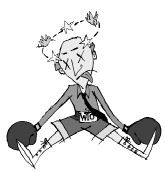How important was last year’s anti-WTO demonstration in Seattle?
It may have been the most important single demonstration in the history of the United States. Time will tell.
Without it, we might well have had a new round of international trade agreements in place by now—agreements that would lead to additional capitalist fortunes and the additional misery of untold billions. Instead, those agreements are far beyond the horizon, negotiations hopelessly stalled in the wake of the Third World’s Seattle-inspired refusal to be bullied by the United States any longer.
Without it, the antiglobalization and anticorporate state protests in Washington, DC, Windsor, Philadelphia, Los Angeles, Prague, and around the world might have happened, but they wouldn’t have been noticed. Instead, trade institutions cannot meet anywhere in the world without being confronted by Seattle-style demonstrations. Instead, an entire generation of young American activists found a unifying theme and strategy that effectively tied together previously separate concerns about labor, the environment, human rights, Third World development, the economy, animal rights, and democracy itself.
Without the protests, Ralph Nader’s presidential campaign would not have had much more resonance than his abortive run in 1996. Instead, he used the populist, anticorporate spirit of Seattle to become a pivotal force in deciding who would ascend to the White House in 2000, inspiring a new generation of young activists along the way.
Locally, without WTO, Paul Schell would be coasting toward a second term as Seattle’s mayor. Instead, there’s hope.
The myopia of civic Seattle in its assessment of what happened here November 27 through December 3, 1999, has been stunning. It’s rather like the City Council declaring war on the local music scene by banning posters at the very moment that grunge was making Seattle an internationally renowned cultural center.
With the WTO protests, a few broken windows (a.k.a. “riots”) and displaced holiday shopping have dominated the local media and political reaction. Meanwhile, “Seattle” became a one-word rallying cry, used to invoke horror by free trade advocates, used to evoke inspiration by those new generations around the world.
It’s impossible to overstate the accomplishment of what was at first, in the wee hours of November 30, only a few thousand wet demonstrators determined to make a statement more emphatic than big labor’s planned symbolic march. Seattle has seen rallies, marches, and demonstrations of a few thousand people before. None of them changed world history. This one did.
They had a big assist from Paul Schell and the SPD, which first allowed demonstrators close enough to the Paramount Theater to shut the opening talks down and then overreacted with a breathtaking display of force against peaceful protesters that made headlines internationally for days. Around the world, advocates for social justice were stunned and elated that activists in the United States, which had long ignored the misery our own government inflicts on the world, were finally on board and willing to endure the repression that is standard fare for antiglobalization demos in the Third World.
They also had a big assist from Bill Clinton, whose hurried “I agree with the demonstrators” call to add labor and environmental standards to the WTO undercut his own delegation, destroyed the WTO’s trade negotiations, and gave the first hint that leaders in high places were utterly panic-stricken that somebody had called their game.
A year later, they haven’t recovered. If anything, it’s gotten worse for the advocates of Trade ܢer Alles. They still have almost every major elected official in the US on their side—free trade was one of those points of agreement in the presidential race that we heard nothing about—but the momentum is lost, probably forever. The US and the European Union are bickering; the WTO, anxious to demonstrate its independence to rebellious African delegates, has ruled against the US on a major tax provision that Congress hasn’t fixed; and the US finds itself unable to pursue its usual course of decreeing and enforcing rules for the rest of the world while successfully ignoring them itself. At the moment, it is doing neither.
Tellingly, that threatens the very viability of the World Trade Organization, which is still, on paper, one of the most ominous and powerful institutions on Earth. A year ago, a few thousand people in Seattle brought it down. It’s still falling. They proved, once again, that ordinary people, working together at the right place and time, can change the world. They are heroes.
Death of an actor
Most deaths are senseless. But few are as shockingly senseless as the untimely demise of noted Seattle actor Anthony Lee, shot to death October 28 by an LAPD officer at a Beverly Hills Halloween costume party. That night, Lee pointed a toy gun at a window and the backyard darkness beyond; in the backyard, a cop responding to a noise complaint saw the gun and opened fire, killing Lee.
At his Seattle memorial service, friends and colleagues gathered to celebrate his life and, pointedly, refuse to draw lessons from his demise. Lee was at one point a gang member growing up in Sacramento; he became a role model for other African-American artists and people throughout the community who admired his success against overwhelming odds.
Bad things happen in this world; to beat the odds requires knowing and coping with that truth. Anthony Lee was no fool. Surely Lee would have been far less surprised by his death, as a black man shot by the LAPD, than his strikingly apolitical memorial entourage seems to have been. He will be missed.








